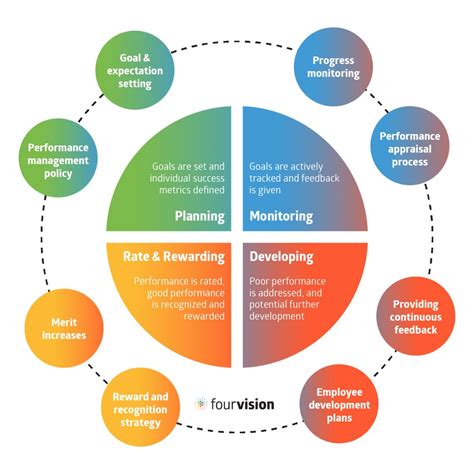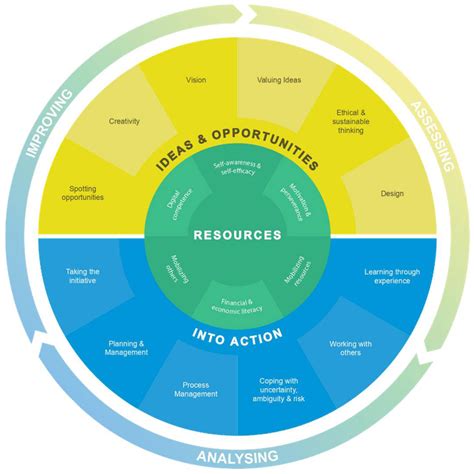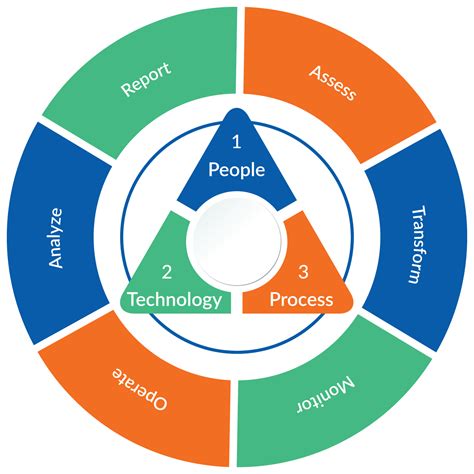Keyword research plays a crucial role in creating effective content for senior care, especially when it comes to supporting and advising on the care of elderly parents. As more families turn to online resources for guidance, using the right keywords ensures your content reaches those who need it most. In this article, we will explore essential keywords for caring for senior parents, from popular search terms to long-tail phrases that address specific needs. By analyzing trends in elderly health and aging in place, you can develop a competitive content strategy. Additionally, we’ll discuss how to incorporate these keywords into your content and monitor their performance over time for continuous improvement.
ujocis.net invites you to delve into this topic thoroughly.
1. Importance of Keyword Research for Senior Care Content
Creating impactful senior care content hinges on thorough keyword research. Families seeking guidance on caring for aging parents often rely on specific search terms related to senior care. By understanding these keywords, you can tailor your content to precisely address the needs and questions of your target audience, making it more relevant and effective.
The elderly health and caregiving space is highly competitive, making search engine optimization (SEO) essential for visibility. Utilizing well-researched keywords is key to attracting organic traffic. This alignment of your content with common search queries makes it easier for families seeking support to find your resources. Furthermore, prioritizing high-performing keywords allows you to establish authority within the senior care niche, building trust with your audience.
Moreover, keyword research assists in uncovering gaps within the current content landscape. By identifying underused or newly trending terms, you can produce distinctive, targeted articles that differentiate themselves from rivals. Ultimately, keyword research forms a fundamental component of a successful content strategy, ensuring your content resonates with individuals seeking guidance on caring for aging parents.

2. Top Keywords Related to Caring for Senior Parents
Choosing the right keywords is essential for your content to reach people seeking information about caring for senior parents. Keywords like “elderly care tips,” “caring for aging parents,” and “senior caregiving advice” perform well in this niche because they directly address the most common concerns individuals have when searching for senior care guidance.
In addition, keywords such as “support for elderly parents,” “best home care for seniors,” and “assisted living options” consistently achieve high search volume because they encompass a wide array of care solutions. By incorporating these high-traffic keywords into your content, you optimize your website’s ranking for searches related to senior care, ensuring greater visibility and attracting a broader audience.
By concentrating on keywords related to specific health concerns, like “dementia care,” “mobility assistance for seniors,” and “medication management for elderly parents,” you can attract a targeted audience seeking solutions to particular challenges. Employing a mix of general and specific keywords expands your content’s visibility and caters to a broader spectrum of caregiving needs.

3. Long-Tail Keywords for Specific Senior Care Needs
Long-tail keywords are crucial for catering to specific senior care needs. They capture detailed search queries from users seeking precise information. By using these longer, more focused phrases, you can reach a niche audience with content directly addressing their concerns.
Effective long-tail keywords for senior care often reflect specific needs and concerns. For instance, phrases like “how to care for elderly parents with dementia at home,” “best mobility aids for seniors with arthritis,” and “tips for managing medications for aging parents” highlight the user’s desire for targeted information. By using these keywords, your content can more easily rank in search results and provide the precise advice that users are seeking.
Long-tail keywords can also target the lifestyle challenges of caregiving. For instance, searches like “activities for elderly parents with limited mobility” or “best home modifications for aging parents” address the practical needs of caregivers. These phrases attract readers who are actively seeking solutions to their everyday caregiving concerns.
By weaving these specific phrases into your content strategy, you elevate your ranking on search engines while simultaneously ensuring your articles connect with users seeking personalized guidance. This method fosters trust and establishes authority in the senior care domain, leading to greater engagement and loyal readership.

4. Keyword Trends in Elderly Health and Aging in Place
The way people search for information about elderly health and aging in place has changed, reflecting a growing desire among families to support seniors in living independently at home. Recent years have seen a surge in searches for terms like “aging in place solutions,” “home care for elderly parents,” and “in-home care services for seniors.” This trend indicates a preference among aging adults for staying in familiar environments rather than seeking care in institutional settings.
Search terms related to senior health are on the rise. Keywords like “chronic illness management for seniors,” “preventing falls in elderly parents,” and “senior mental health support” are increasingly popular. Furthermore, the growing emphasis on holistic well-being is reflected in the increased use of phrases such as “emotional support for aging parents” and “healthy aging tips for seniors,” which are now key drivers of traffic to senior care resources.
The increasing popularity of technology-based solutions is driving new trends in keyword searches. Terms like “smart home devices for elderly care,” “telehealth for seniors,” and “remote monitoring for aging parents” are becoming more common. This indicates a rising need for innovative, user-friendly tools that enhance the safety and ease of aging in place.
By keeping abreast of these evolving trends, you can ensure your content remains relevant and meets the evolving needs and preferences of caregivers and seniors.
5. Competitive Analysis of Keywords in Senior Care Niche
To ensure your content effectively reaches its target audience in the senior care niche, a competitive keyword analysis is essential. Given the high competition surrounding broad terms like “senior care” and “elderly care services,” it’s vital to understand what keywords your competitors are ranking for. This analysis helps identify opportunities to differentiate your content and stand out from the crowd.
Start by identifying the top-performing websites in your niche, including those specializing in senior care services, home health agencies, and eldercare advice blogs. Employ keyword research tools like Google Keyword Planner, Ahrefs, or SEMrush to determine the keywords these websites are targeting. Focus on high-volume keywords, such as “best home care for seniors” or “assisted living vs. home care,” which attract significant traffic but often face intense competition.
To gain a competitive advantage, target long-tail keywords and niche phrases that are less frequently used by rivals. Phrases such as “how to care for senior parents at home” or “elderly care tips for busy families” offer potential for higher rankings by directly addressing specific needs and concerns.
Furthermore, analyzing keyword gaps – search terms that your competitors are not targeting – allows you to create distinct content that fulfills unmet demands. Understanding the competitive landscape enables you to refine your keyword strategy, focusing on high-potential areas while avoiding overly competitive terms.
6. Incorporating Keywords into Content Strategy
To boost visibility and connect with the right audience in the senior care market, integrating keywords into your content strategy is crucial. Begin by strategically incorporating high-performing and long-tail keywords throughout your content in a natural way. Start with your main keyword, such as “caring for senior parents,” and include it in key areas like the title, meta description, and headers. This will help search engines understand the subject matter of your article.
To optimize your content for search engines while ensuring readability, strategically place primary and secondary keywords throughout your writing. For example, phrases like “elderly care tips” or “home care for aging parents” can be integrated naturally into the main text, subheadings, and image alt tags. This distribution of keywords helps improve your website’s ranking in search results.
Content should be crafted to address common inquiries and concerns. For instance, if “how to care for aging parents with dementia” is a popular search term, create a comprehensive guide around this subject, emphasizing actionable steps and practical advice. Make sure to include long-tail keywords that target specific needs, as these can help reach niche audiences.
Finally, updating your content regularly with new keywords and trends ensures its relevance over time. Consistent optimization helps maintain visibility and allows you to stay competitive in the evolving landscape of senior care.
7. Monitoring and Adapting Keyword Performance Over Time
Staying ahead of the competition in the senior care niche requires continuous monitoring and adjustment of your keyword performance. After implementing your keyword strategy, it’s essential to track how well your content is performing. Tools like Google Analytics and Search Console can provide valuable data, revealing which keywords attract traffic, how users interact with your content, and where adjustments might be needed.
Begin by examining key metrics like organic traffic, click-through rates (CTR), and bounce rates for pages targeting specific keywords. If certain keywords are underperforming, it may be necessary to re-evaluate their relevance or the quality of the content associated with them. For instance, if a long-tail keyword such as “best mobility aids for seniors” fails to attract traffic, consider enhancing the content by offering more comprehensive information or addressing user queries more effectively.
Furthermore, stay informed about evolving trends in the senior care industry. New keywords may rise in popularity over time, highlighting the importance of keeping abreast of shifts in search patterns and audience demands. Regularly refreshing your content with up-to-date keywords and insights not only optimizes your search engine ranking but also elevates the user experience.
Finally, consider A/B testing various keyword placements and content formats to determine what best connects with your audience. This adaptable strategy ensures that your content remains relevant, informative, and in sync with the dynamic field of elderly care.
In conclusion, effective keyword research and strategy are vital for creating impactful content on caring for senior parents. By understanding top keywords, long-tail phrases, and trends in the senior care niche, you can tailor your content to meet specific needs. Continuously monitoring keyword performance and adapting your strategy ensures that your content remains relevant, informative, and accessible to families seeking support.
ujocis.net

